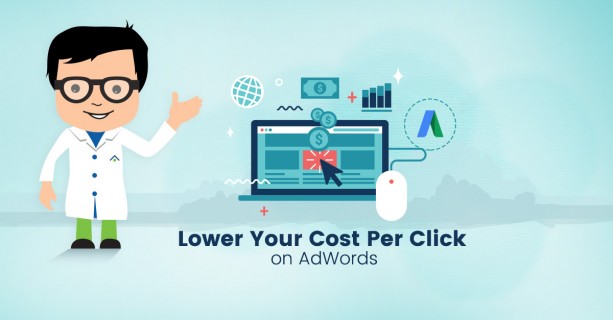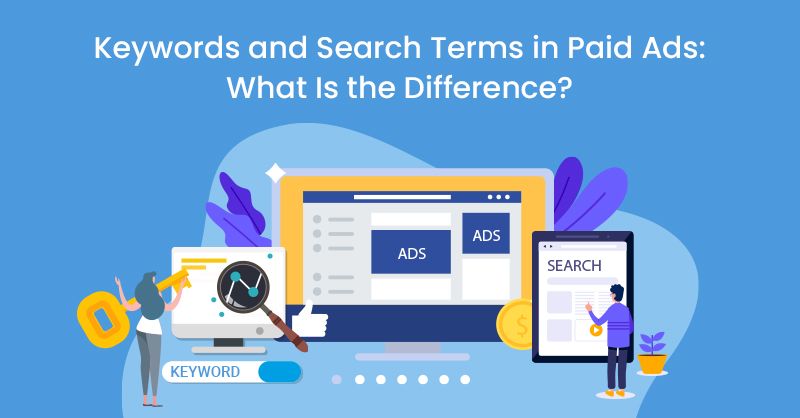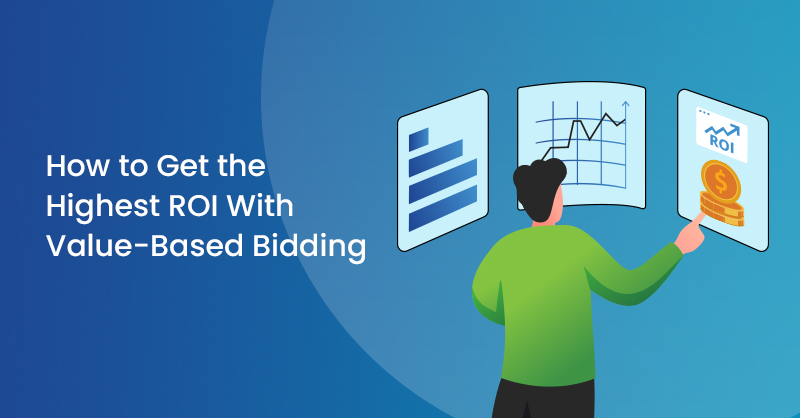One of the key KPI’s that should be tracked in order to maximize the results of your paid search campaign, is your cost per click (CPC). Your cost per click is the actual dollar amount you spend per click on AdWords. AdWords provides you with an actual CPC for each keyword you are targeting, as well as an average CPC for your entire campaign.
Your cost per click can vary depending on a multitude of factors, including:
Bidding Strategies
If you’re using manual cost per click bidding, you will have more control over your cost per click than someone who is using Enhanced CPC bidding. Manual cost per click bidding allows you, the campaign manager, to control how much you want to spend on keywords and whether or not you want to increase that bid for specific keywords. Enhanced CPC bidding gives Google AdWords the power to automatically bid on keywords that will more likely result in an online conversion. There are advantages and disadvantages to both bid strategies on AdWords, therefore it is important to understand the pro’s and cons of each in order to make an informed decision on the right bid strategy for your business and online marketing goals.
Industry Competition
Cost per click can also depend on how competitive your industry is. Certain keywords are extremely competitive, therefore businesses are more likely to increase their cost per click for these keywords. When a competitor increases their bid for a keyword, it sets off a chain reaction for all other businesses to boost their maximum cost per click bids in order to maintain their high ad rank position on the search engine results page (SERP). For these reasons and more, it’s important to have a solid understanding of the search traffic and competition in your industry, so you are able to effectively optimize your campaign to generate results for your business.
When looking to lower your cost per click, your first instinct might be to lower your bids for all your keywords - that would be wrong! Lowering your cost per click bid can decrease your quality score and end up costing you more money per lead. If you want to efficiently spend your digital marketing dollars, lower your cost per click on AdWords with these 5 simple tips!
Keyword Relevance
Keyword relevance is crucial to success of your AdWords campaign and to lowering your cost per click. Your ad groups should be organized into themes within your campaign. Whether the themes are individual products or services, the keywords within that adgroup should all be highly relevant to one another. Overlapping of keyword themes can lead to a low quality score, and therefore an increase in your cost per click.
For example, if you are a dentist running an AdWords campaign, you wouldn’t want to have the keywords “veneers” and “braces” in the same adgroup. These services should be two separate ad groups with highly relevant ad copy, ad extensions, and a landing page for each.
Negative Keywords
Similarly, negative keywords also contribute to lowering your cost per click. Negative keywords are a keyword match type that tells Google AdWords not to show your ad when the word is searched. Negative keywords help lower your cost per click because it prevents your ads from showing up on irrelevant terms that can lower your click through rate. A healthy click through rate is important to a high quality score. When your click through rate is poor, you lower your quality score and therefore increase your CPC.
An example of using negative keywords would be if you are a coffee shop targeting the keyword “java,” you should have “script” as a negative keyword. This would stop your ads from showing up for the search term “java script” - a computer programming language.
Landing Page Relevance
Landing page relevance is critical to lowering your cost per click on Google AdWords. Your landing page should be:
- Relevant to the user’s search query
- Relevant to the keywords in the adgroup
- Relevant to the ad copy
You wouldn’t want to send a user searching for a physiotherapist, to a page about podiatry. Although both services are offered, the landing page is not relevant to the search term, and can frustrate the consumer. Having relevant, useful, and original content on your website will promote a health quality score and lower your cost per click.
Landing Page Experience

Image Source
Google wants to provide its users with the most positive experience when searching online, both organically and through paid advertising on AdWords. When determining what page to send paid traffic to on your website, there are a few things to consider:
- How fast does the page load?
- Is the navigation easy on desktop and mobile?
- Can users easily find what they are looking for?
- Is the website mobile-friendly?
- Is it easy for people to make a purchase or contact you?
Sending users to a website that doesn’t answer “yes” to all of the above questions is damaging to the overall health of your AdWords campaign. Ensuring that your landing page provides a positive user experience will increase your quality score and lower your cost per click.
Bid Adjustments
Bid adjustments are an effective way of decreasing your CPC by spending your budget efficiently on optimal demographics. When analyzing your campaigns, notice which locations, devices and days of the week have the best click through rate (CTR), conversion rate, and CPC. Use bid adjustments to bid higher on the demographics that are performing the best. When you focus your efforts on campaigns that are performing well, you improve the overall health of your campaign and lower your cost per click.
No matter your industry or bidding strategy, all businesses can benefit from lowering their cost per click on AdWords. Lowering your cost per click leads to a boost in targeted traffic to your website, the opportunity to generate more leads for your business, and as a result, lower your average cost per lead (CPL).
If you need help optimizing your AdWords campaign or would like to generate targeted leads for your business online, contact TechWyse today and speak to one of our AdWords specialists. We can help you achieve your goals, and take your business to the top!







on
[…] keywords prevent clicks from queries that are similar, but not relevant to the […]